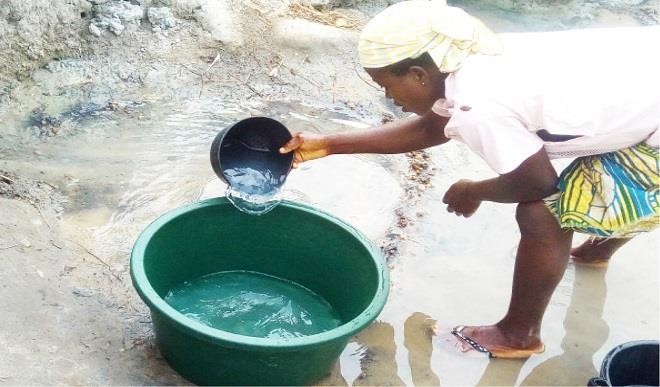Why Nigeria needs to link water availability to sanitation
It is no doubt that basic sanitation is grossly inadequate in most rural communities across Nigeria. The rural communities are said to hold almost 67 per cent of Nigeria’s households, yet they have poor basic facilities for water and sanitation. The situation is still not different despite the declaration of a state of emergency on […]

It is no doubt that basic sanitation is grossly inadequate in most rural communities across Nigeria. The rural communities are said to hold almost 67 per cent of Nigeria’s households, yet they have poor basic facilities for water and sanitation.
The situation is still not different despite the declaration of a state of emergency on Nigeria’s water, sanitation and hygiene sector due to the high prevalence of water-borne diseases in the country by President Muhammadu Buhari in November 2018.
A report by the Centre for Science and Environment (CSE), a New Delhi (India) – based research and advocacy body,tagged “Nigeria Improving the State of Sanitation” said only 26 per cent of the rural areas have access to basic water and sanitation while the situation is slightly better, with 45 per cent of the urban population accessing such services.
According to the report, the situation is not just in households as schools also face sanitation and water crisis, saying, only 15.7 per cent of schools have access to basic water and sanitation services. Around 40.3 per cent of the schools do not have any toilet facility on their premises.
Sanitation practices according to geopolitical zones showed that 24.4 per cent of the population defecates in the open (47m), and only 19.2 per cent (37m) have safely managed sanitation or improved sanitation services.
While those who have unimproved sanitation (unimproved toilet and hygiene) are 18.2 per cent (35m), limited sanitation (improved toilets shared by two or more households) are 15.9 per cent (30m) and those with basic sanitation (improved toilet and private) are 22.3 per cent (43m).
It said data from the Nigerian government showed that water-borne diseases have led to the death of 100,000 children below the age of five years each year of which 90 per cent are directly caused by unsafe water and sanitation.
Meanwhile, the economic implication of unsafe and unimproved sanitation cost Nigeria N455 billion every year, which is equivalent to 1.3 per cent of the annual GDP of the country.
According to a 2019 Joint Monitoring Programme report, the annual change in open defecation between 2000 and 2017 is only 0.39 per cent and in spite of the improvement in basic sanitation in the country, 27 million people still defecate in the open.
The CSE report noted that in spite of the progress, Nigeria has huge unmet demands as it has the world’s largest population that defecates in the open, putting a health burden on the people.
The report recommended that Nigeria strengthens its legal and institutional structures for effective implementation of improved sanitation and to work on ensuring safe treatment/reuse of household excreta.
It said Nigeria should link water availability with sanitation and reuse as it has adequate rainwater harvesting potential to cater to its household needs.
“The country should introduce small scale harvesting system, revive traditional water harvesting systems and focus on groundwater recharge structures,” the report said.
While pointing out that water should be mandated for functional toilets, it said the government should provide support to the communities.
The report also recommended that the government should involve communities, especially women, in small scale projects, make them aware and motivate them through incentivised schemes.
The CSE, however, said it would work closely with the Federal Ministry of Environment and Water Aid Nigeria to plan and design safe technologies and policy regulation to manage faecal sludge and wastewater in different ecological regions in the country.
